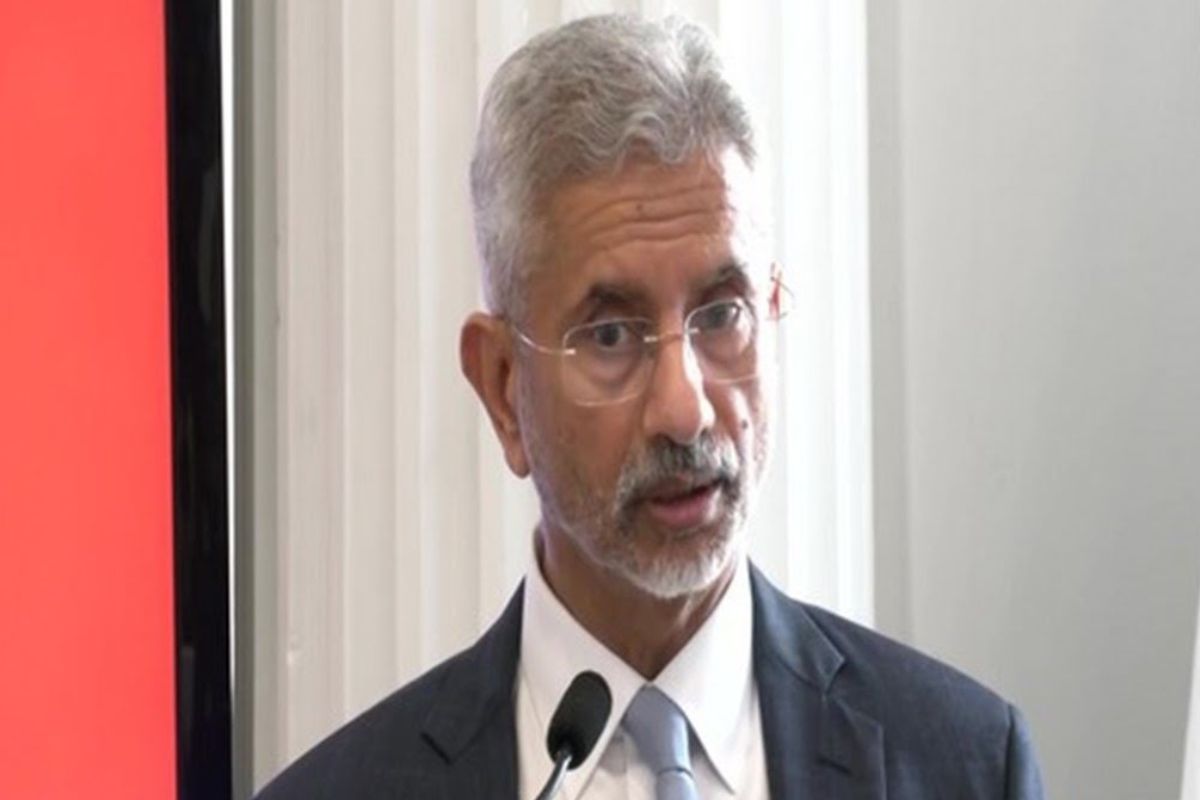Jaishankar to attend G20 foreign ministers’ meeting in S Africa
External Affairs Minister S Jaishankar will visit South Africa to participate in the G20 Foreign Ministers' Meeting from February 20-21.
At the SCO Council of Foreign Ministers (CFM) meeting in Goa, the external affairs minister warned member nations of the grouping that taking their eyes off the menace would be detrimental to their own security interests.

External Affairs Minister S Jaishankar (Photo: ANI)
External Affairs Minister S Jaishankar on Friday talked tough on terror in the presence of his Pakistani counterpart Bilawal Bhutto Zardari at the SCO Council of Foreign Ministers (CFM) meeting in Goa, warning member nations of the grouping that taking their eyes off the menace would be detrimental to their own security interests.
”We firmly believe that there can be no justification for terrorism and it must be stopped in all its forms and manifestations, including cross-border terrorism. The channel of finances for terrorist activities must be seized and blocked without distinction,” he said chairing the key meeting, also attended by Chinese Foreign Minister Qin Gang, Russian Foreign Minister Sergey Lavrov and the foreign ministers of Kazakhstan, Tajikistan, Uzbekistan and the Kyrgyz Republic.
Advertisement
The Indian minister said SCO members need not be reminded that combating terrorism was one of the original mandates of the grouping and pointed out that even when the world was engaged in facing Covid-19 and its consequences, the menace continued unabated. This was in an obvious reference to Pakistan’s continued support to cross-border terrorism in India.
Advertisement
Jaishankar earlier greeted the foreign ministers, including the Pakistan foreign minister, with ‘Namaste’ at the meeting venue in Goa. There was no handshake between Jaishankar and Bilawal last night too even as they exchanged pleasantries at the gala dinner hosted by the Indian minister last night, ahead of the CFM meet.
Addressing the meeting, Jaishankar said the unfolding situation in Afghanistan remained at the centre of the attention of the global community. ”Our efforts should be directed towards the welfare of the Afghan people. Our immediate priorities include providing humanitarian assistance, ensuring a truly inclusive and representative government, combating terrorism and drug trafficking and preserving the rights of women, children and minorities,” he said.
Jaishankar said as a result of the pandemic and geopolitical upheavals, the world was today facing a multitude of challenges. These events have disrupted global supply chains, leading to serious impacts on the supply of energy, food and fertilizers and cascading effects on developing nations.
”These crises have also exposed a credibility and trust deficit in the ability of global institutions to manage challenges in a timely and efficient manner. These challenges, however, are also an opportunity for member states of the SCO to collaborate and address them collectively. With more than 40 per cent of the world’s population within the SCO, our collective decisions will surely have a global impact,” he added.
He said India has always stood for multilateral approaches to addressing global challenges and has always been a willing partner in sharing its expertise and experience. In this regard, India’s own achievement in the field of startups and innovation was a remarkable journey. ”Today, there are more than 70,000 startups in India of which more than a hundred are unicorns. We stand ready to share our experience with Member States,” Jaishankar added.
Noting that the SCO was in its third decade of existence and this was an opportune time for its reform and modernisation to keep the organisation relevant in a rapidly transforming world, he sought the support of member nations for the long-standing demand of India to make English as the third official language of the organisation.
India has, meanwhile, proposed an SCO Summit Declaration and four other thematic joint statements on cooperation in deradicalisation, strategies, promotion of millets and sustainable lifestyles to address climate change and digital transformation.
Advertisement